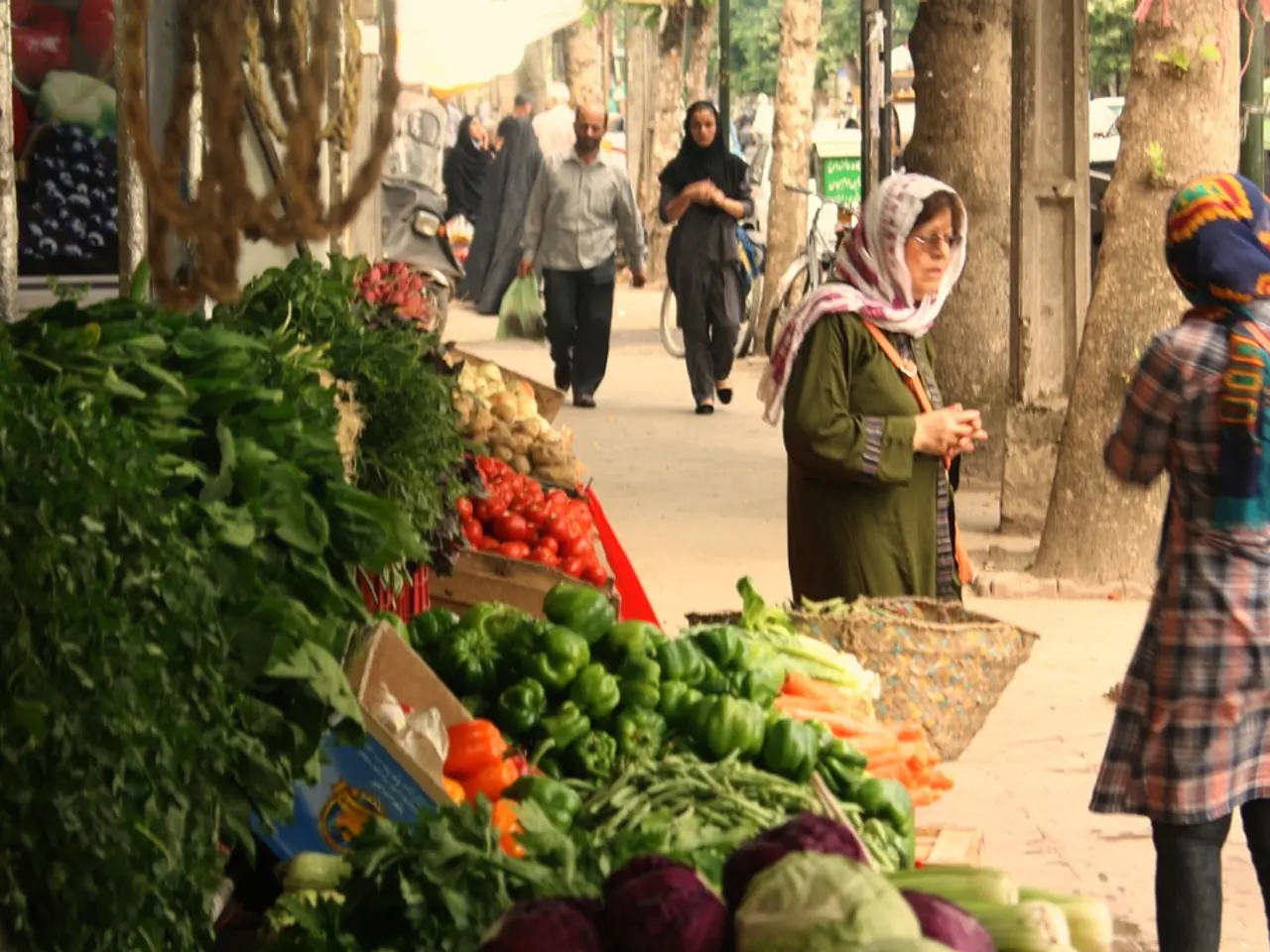"Piyush Goyal asserts that India's interests take precedence over the timeline of US trade talks"
India's agricultural sector has emerged as a highly sensitive issue in the ongoing interim trade deal negotiations with the United States, with both sides showing a keen interest in striking a balance between trade liberalization and domestic socio-economic interests.
The agricultural sector in India is politically and socially sensitive due to its large rural population and the sector's economic importance in employing over 80 million people, particularly in dairy. India is firm in its stance against opening its agricultural and dairy sectors fully to the US, resisting tariff reductions on key US products such as genetically modified corn, soybeans, rice, wheat, dairy, apples, and tree nuts.
The Minimum Support Price (MSP) system and public procurement act as safety nets for Indian farmers, protecting them from volatile global commodity markets dominated by multinational agribusinesses. Relaxing tariffs could potentially expose farmers to these markets, leading to fears of protests and destabilizing the rural economy, which remains vulnerable to global market shocks.
The hard agricultural stance has caused delays and extended negotiations, with Indian trade officials having to prolong their stay in Washington to hammer out details. The US, in contrast, is pushing for wider market access for its agricultural exports and duty concessions, making it a key point of contention.
Both sides are reportedly accommodating each other's sensitivities in an interim agreement intended as a stepping stone, not a final mega-deal. India seeks greater access to labor-intensive sectors like textiles, leather, and jewellery as part of the broader negotiations to balance the deal. The deal aims to avoid rushed compromises based merely on tariff suspension deadlines, focusing instead on India's national interests.
The interim deal expected soon will likely maintain India's protection of its agriculture sector while offering concessions elsewhere, signaling a pragmatic compromise. The interim agreement is designed to be durable and a foundation for more comprehensive future trade talks, reflecting the geopolitical importance of India-US ties.
The negotiations exemplify the complex balance between trade liberalization ambitions and protecting domestic socio-economic interests, especially in a politically charged sector like agriculture. The sensitivity of agricultural issues in trade negotiations is due to their closeness to the home and heart of the people in both countries.
Atul Keshap, president of the United States India Business Council (USIBC), stated that farming and agriculture are culturally and politically important in both India and the US. Union Minister Piyush Goyal reiterated that India's approach to international trade negotiations remains firm and principled, emphasizing that a deal is accepted only when it is fully matured, well-negotiated, and in the national interest.
The suspension of US reciprocal tariffs is set to end on July 9, and the two sides are looking to finalize the talks before that. The India-US interim trade deal is intended to be a "true win-win negotiation" and an agreement that will endure, with potential for expansion in a broader mega deal.
- The sensitivity of agricultural issues in trade negotiations, as seen in the ongoing India-US interim trade deal, is not limited to India alone; it's also a politically charged matter in the United States.
- As the India-US interim trade deal progresses, focusing on balancing trade liberalization with domestic socio-economic interests, both countries' finance, business, and politics sectors will closely observe the outcomes, particularly in the general-news sector.




